MercoPress. South Atlantic News Agency
Tag: devaluation
-
Saturday, May 18th 2024 - 10:57 UTC
Wages keep losing purchase power in Argentina, study finds
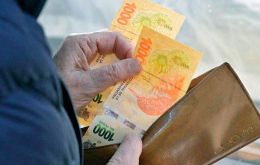
According to a study released Friday in Buenos Airers by the Research and Training Center of the Argentine Republic (Cifra), formal wages took a slump of nearly 15% in the last semester, particularly after the Dec. 13 118.3% devaluation of the local currency once Javier Milei took office as president.
-
Tuesday, August 15th 2023 - 10:23 UTC
Argentine devaluation consistent with IMF guidelines
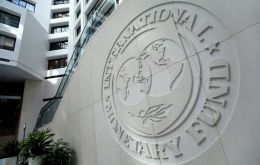
The International Monetary Fund es expected to release over US$ 10 billion to Argentina which might come as some sort of relief following Monday's decision to devaluate the local peso in the aftermath of the government's poor performance Sunday at the Open, Mandatory, and Simultaneous Primary (PASO) elections.
-
Thursday, November 17th 2022 - 19:17 UTC
No devaluation needed for now in Argentina
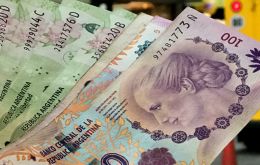
The Argentine administration of President Alberto Fernández has been reported to have under its sleeve a strong trade surplus for the month of October with which pressure to devalue the local peso will be deflected, at least for now.
-
Friday, September 2nd 2022 - 19:06 UTC
Venezuelan devaluation drives prices upwards

Unofficial reports in Venezuela speak of an increase of around 33% in mass-consumption products after the US dollar went up against the local Bolivar and local consumers increasingly prefer black market deals.
-
Saturday, July 9th 2022 - 10:15 UTC
Contradicting messages from Batakis herald split devaluation

Argentine Economy Minister Silvina Batakis has been reported Friday to be evaluating several possible scenarios, all of which involve some forms of devaluation of the local peso.
-
Wednesday, December 22nd 2021 - 11:36 UTC
Argentine peso needs devaluing, Goldman Sachs report says
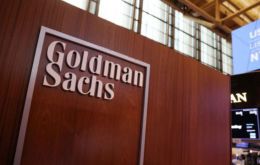
A macroeconomic report from Wall Street operators Goldman Sachs released Tuesday has warned that “without fiscal or monetary anchors” the country is up for strong “headwinds” in 2022 and 2023 and, therefore, “the peso needs to be devalued.”
-
Monday, November 22nd 2021 - 09:58 UTC
Fears of devaluation loom over Argentina as Central Bank reserves run almost dry

Argentine Economy Minister desperately needs to reach an agreement with the International Monetary Fund (IMF) this week, because the Central Bank (BCRA) has only US $ 800 million left in cash with which to intervene in the local exchange market, which is pressing for a devaluation.
-
Thursday, October 14th 2021 - 08:59 UTC
Central Bank of Brazil takes action to reverse real shrinking

Brazil's Central Bank Wednesday took an active role in the currency exchange market and sold US $ 1 billion to avoid a devaluation of the real, which has already lost a third of its value against the US dollar in 2021 alone
-
Thursday, December 6th 2018 - 08:45 UTC
Argentine manufacturing and construction declines during October
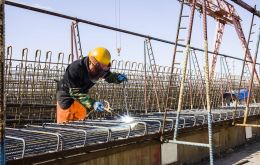
Manufacturing in Argentina fell 6.8% in October year on year, while construction declined 3.7%, and in the first ten months of this year 2.5% and 4.9% respectively according to the Indec statistics bureau report. Firms were hit hard by a contraction in economic activity and the devaluation of the Peso against the US dollar.
-
Thursday, October 11th 2018 - 08:45 UTC
Macri administration reverses latest cooking gas price increase following public outrage

Argentina will pay for unforeseen increases in the cost of cooking gas following public outrage and opposition in Congress to stymie the plan which would have seen consumers paying increased gas prices in 24 installments from January 2019.
